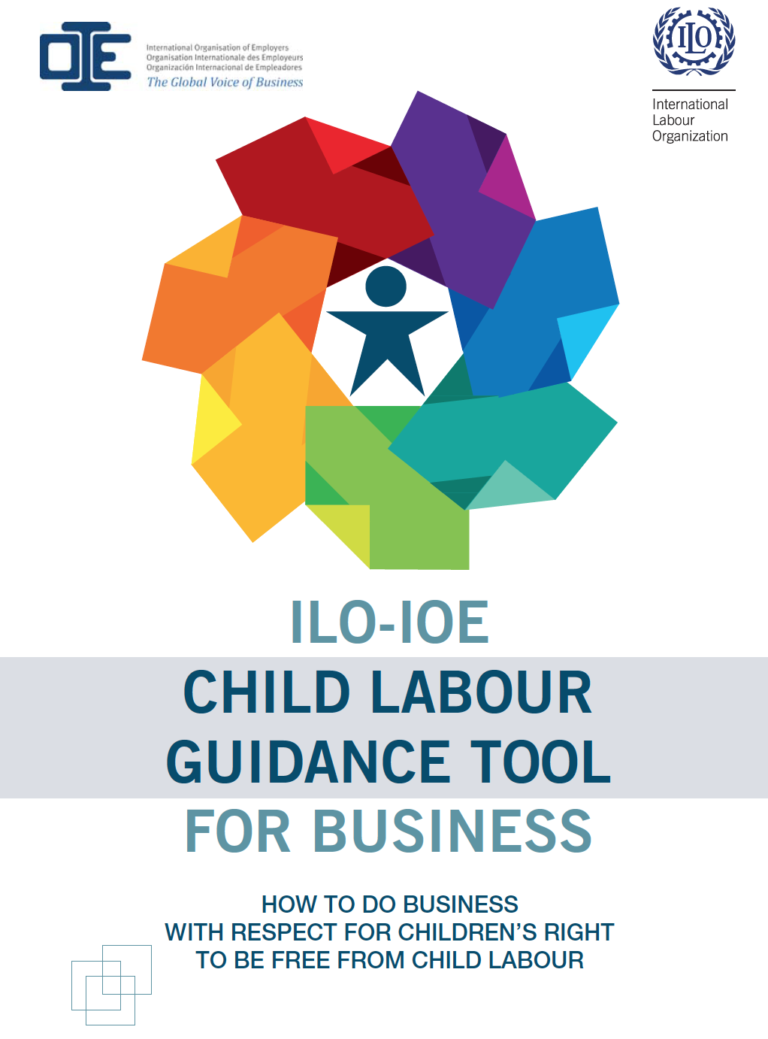The guidelines aim to improve global supply chain governance, due diligence and remediation processes to advance the progressive elimination of child labour.
The Child Labour Guidance Tool was created jointly by the International Labour Organization and the International Organisation of Employers (IOE) as a resource for companies to meet the due diligence requirements laid out in the UN Guiding Principles on Business and Human Rights, as they pertain to child labour. It draws on the long experience of the ILO’s Internation- al Programme on the Elimination of Child Labour (ILO-IPEC) in cooperating with employers to combat child labour in supply chains.
The Guidance Tool focuses on the three “H’s”: (1)Hiring: end the practice of hiring children; (2) Hazards: eliminate hazardous child labour; (3) Hours: reduce the working hours of any children above the minimum age to ensure that they do not work more than the number of hours allowed under national law for light work and regular work.
The Guidance Tool explores what is expected of companies when seeking to prevent and address impacts deep in the supply chain, including working together with other actors, par- ticularly governments. The Guidance Tool refers to the relevant international standards of the ILO, and reflects the experiences of individual companies that are working to implement the UN Guiding Principles on Business and Human Rights.

